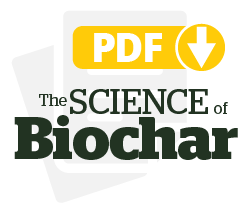Biosolids and phosphate remediation with biochar

University of Tennessee’s Center for Renewable Carbon set out to see how biosolids (sewage waste) could absorb excess of Phosphate. This easy-to-read presentation lays out their experiment and conclusions, showing that biosolid-based biochar is both environmentally friendly and cost effective in absorbing excesses of Phosphate.
Excerpt from the UT Center for Renewable Carbon report:
“According to a 2004 E.P.A. report, approximately 7.1 million tons of biosolids are produced in the US each year. Biosolids are a nutrient-rich organic materials resulting from the treatment of sewage sludge. Up until now, these byproducts of waste treatment have been incinerated, buried in a landfill, or field-applied as fertilizers. Land applied biosolids receive additional treatment to remove pathogens and trace metals. In this study, the biosolid was characterized as a possible precursor for biochar as a remediation source for excess phosphates (P) in the environment through adsorption processes. Biochar is the carbonaceous product of pyrolysis, which is a thermochemical process in the absence of oxygen at elevated temperature. Due to the high ash content of sewage sludge, it was hypothesized that biosolid-derived biochar would contain more metal oxide functional groups on its surface when compared to biomass-derived biochars. These groups increase the anion exchange capacity (AEC) of the mineral surface. In addition, higher pyrolysis temperatures were used to increase the concentration of metal oxides on the biochar surface to provide maximum bonding sites for anion adsorption. The pyrolytic conversion of biosoilds to biochar can be a promising method for improving the management of sewage sludge and increasing the value-added products from this byproduct of waste treatment.”






